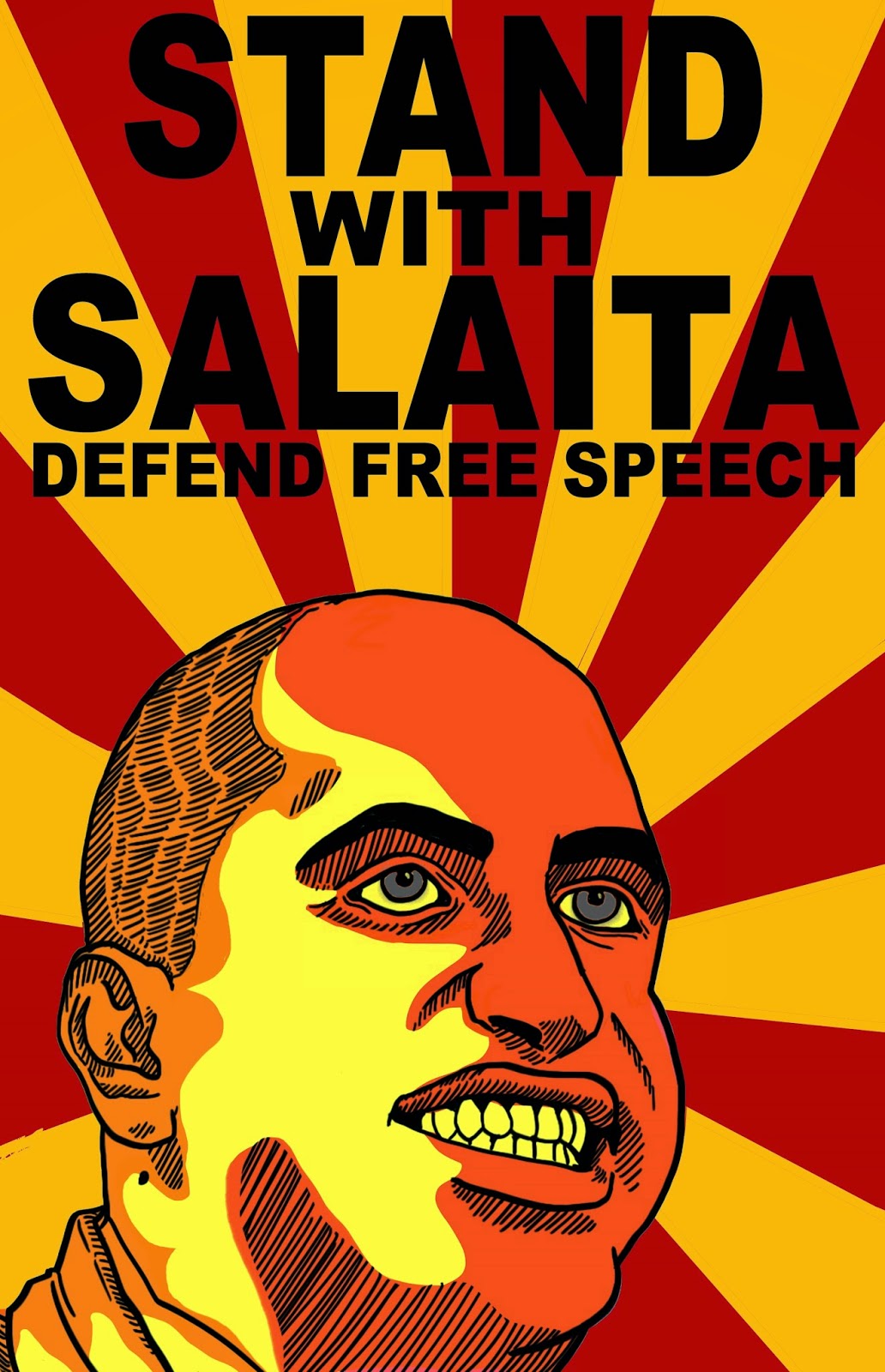Steven Salaita Lands Job at American University of Beirut, Talks Black Politics and Palestine Solidarity

Solidarity Poster done by the “Anti War Committee – Chicago”
Steven Salaita announced on Twitter that he will be the Edward W. Said Chair of American Studies at the American University of Beirut (AUB) for the 2015-16 academic year.
I'm thrilled to announce that I will serve as the Edward W. Said Chair of American Studies at #AUB for the 2015-16 academic year.
— Steven Salaita (@stevesalaita) July 1, 2015
Salaita's career came under the spotlight when he was offered a tenured position at the American Indian Studies program at the University of Illinois at Urbana/Champaign (UIUC). But after posting tweets criticizing Israel's latest attacks on Gaza in the summer of 2014, the university withdrew the offer in August 2014. The withdrawal drew nationwide condemnation in American academia as an assault on constitutionally sanctioned freedom of speech. Despite the criticism, including a condemnation from the University's American Indian Studies program and its Executive Committee of the Program in Jewish Culture and Society, the UIUC's chancellor Phyllis Wise refused to provide proper justification for denying Salaita tenure.
In response, numerous academics have called for a boycott of the UIUC and several high-profile professors have canceled scheduled talks at the university, including Taner Akcam, a leading scholar of the Armenian Genocide, and Todd Samuel Presner, director of Jewish studies at the University of California, Los Angeles (UCLA) and a Holocaust scholar. The UIUC eventually admitted pre-emptive firing and was put on the American Association of University Professors (AAUP)'s censure list. The entire story has been carefully and constantly documented by the Electronic Intifada, and continues to be to this day.
In a speech given at the University of Chicago on October 7, 2014, alongside the Electronic Intifada‘s Ali Abunimah, Salaita started by acknowledging that what happened to him “has been happening to ethnic, sexual and cultural minorities in academia for decades, African-Americans especially, and continues to happen today.” He then went out to point out that “a shameful irony is that Jews were long marginalized in the Academy because of their supposed dangers to ‘anglo-civility’, victims to rationalizations for their exclusions that sadly don't look terribly different than the ones being used against supporters of Palestinian human rights. The suppression of ‘blackness’ and ‘indigeneity’ predates the purge of Palestine and in many ways contextualizes and sustains it.”
In a brief conversation with Global Voices, Salaita explained the relevance of black politics with Palestine solidarity politics.
Palestine solidarity politics have always been in conversation with black politics, especially black nationalist politics, and other ethnic and radical traditions, so it's less a creation of something new than the recovery of very strong and fruitful traditions. First of all, we have a responsibility to those who are mistreated in our own communities. Second, the connections between Israeli and US violence are legion, too many to mention. And finally, these narratives offer tremendous organizing possibilities. We are strongest when we work together, able to listen and self-criticize.
While getting the position for which he was originally hired “remains the goal”, Salaita said that he's looking forward to teaching at AUB:
I'm planning to offer courses in American Indian and Indigenous Studies. I don't think that these areas have had a strong presence on campus, so it will be exciting for lots of us to get started. I have a feeling I'll end up learning much more than I teach.